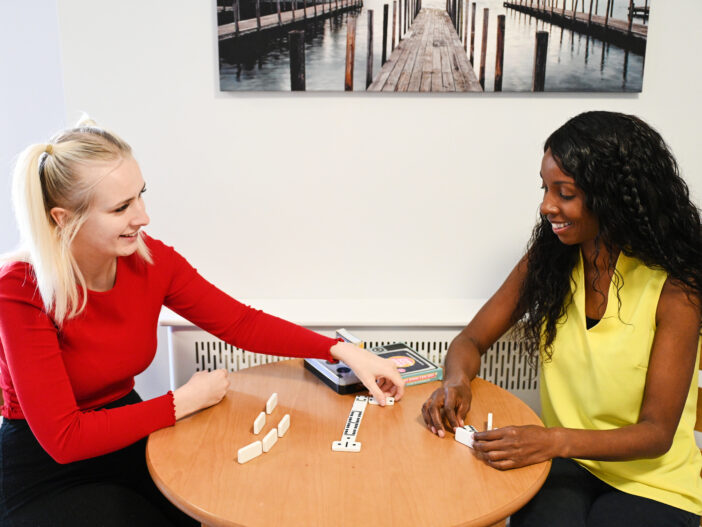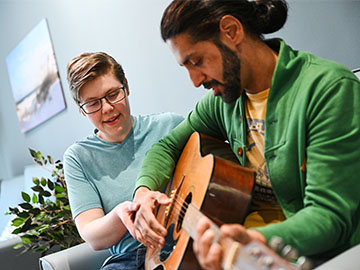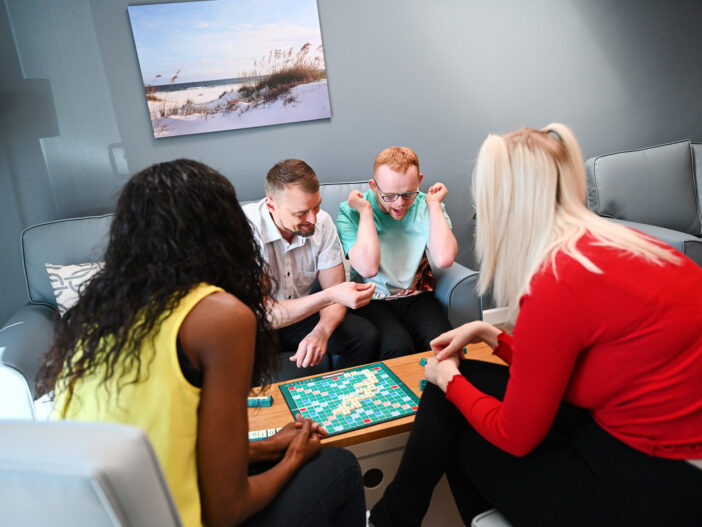The benefits of digital assessments in a post-pandemic world
In our latest blog, Brain Injury Rehabilitation Placements Manager, Louise Houghton, shares her thoughts on the benefits of digital assessments in a post-pandemic world, after many health and social care providers were forced to modernise their approach throughout COVID-19.
The pandemic
When COVID-19 hit the UK, the country came to a halt and the Health and Social Care sector felt it first. Many assessments were postponed in the name of keeping vulnerable people safe, and to reduce the likelihood of infections. Hospitals on the other hand were affected differently, they were trying to clear beds for COVID patients, putting pressure on the system. This meant the people I was assessing had funding and were ready to move into our services with quite a quick turnaround. Safety is always at the forefront, so we suggested virtual assessments as opposed to moving someone straight into a home.
We initially used Skype as the business didn’t have Microsoft Teams at the time, and this allowed us to meet needs very quickly. It wasn’t as structured and formal as it is now, and at times we did refer to teleconferencing as some NHS systems couldn’t connect to our meetings. Often, we would switch between Skype and WhatsApp for video assessments and use teleconferencing for those who couldn’t have a video call. My first thought after doing this for a few weeks was, what can we do to make this better?
Benefits of the digital assessments
We are still getting used to the digital world and are now using more platforms like Microsoft Teams. Many of the assessments we do are funding reviews, meetings, reviews, and social worker meetings. It still can be difficult because an assessment involves a range of different people, from the individual and their families, to social workers, doctors and NHS professionals.
Virtual meetings are useful, because it means you get all the relevant people involved while saving travel time. It also means as a Placement Manager, I can fit in more assessments, and support more people through their journey. For example, I can usually fit in around four to five assessments a day now, whereas I used to only be able to manage two when I was travelling across the country.
Another benefit of meeting virtually is that we receive much more information and collaboration from those involved in the assessments in comparison to pre-COVID-19. Typically, we used to receive a quick phone call from a social worker who would give basic information about an individual, but now we get a full report. This saves so much time, is more accurate and helps us understand the individual and their needs earlier on in the process.
Hospital staff also benefit in this shift to the digital world when it comes to assessments, making the transition of patients quicker and more efficient. I can respond quickly on the move and have more availability for assessments because it’s done remotely. COVID-19 initially meant lots of assessment cancellations, but in moving to a virtual format, we’ve managed to reduce these cancellations, because it can all be done from an isolated office or from home.
Plus, most of the applications we use for virtual assessments are free, which is another great benefit and means we have a variety of communication tools at our disposal.
Assessments and person-centred care
There is a big difference between face-to-face interactions and digital ones. Sometimes it can feel a little impersonal because it’s all online. To combat this, we organise introductory meetings with the individual and everyone involved in their care and arrange for them to visit the service so they can see our environment and how they’ll fit within it. This helps us learn more about the individuals’ needs and how we can provide tailored support for them.
Many people we speak to enjoy the video call because it feels personal to them. We still use teleconferencing for those who can’t access video and still make the time for face-to-face assessments, especially if some individuals have communication issues.
During the assessment, we gather as much information as we can from all parties involved such as doctors, therapists, social workers, families, carers, and guardians. This helps us determine where we place an individual, as well as what support might be available. This means care is always unique to every individual and person-centred, putting them at the forefront of decision-making.
We are always looking at new tools we can use that will help us continue to make the most of virtual assessments going forward and we are currently developing new assessments that truly consider person-centred care formally as part of the process.
Find out more
If you would like to find out more about our brain injury rehabilitation support, please visit our Brain Injury Rehab page or fill out our quick enquiry form.

 Views
Views 

